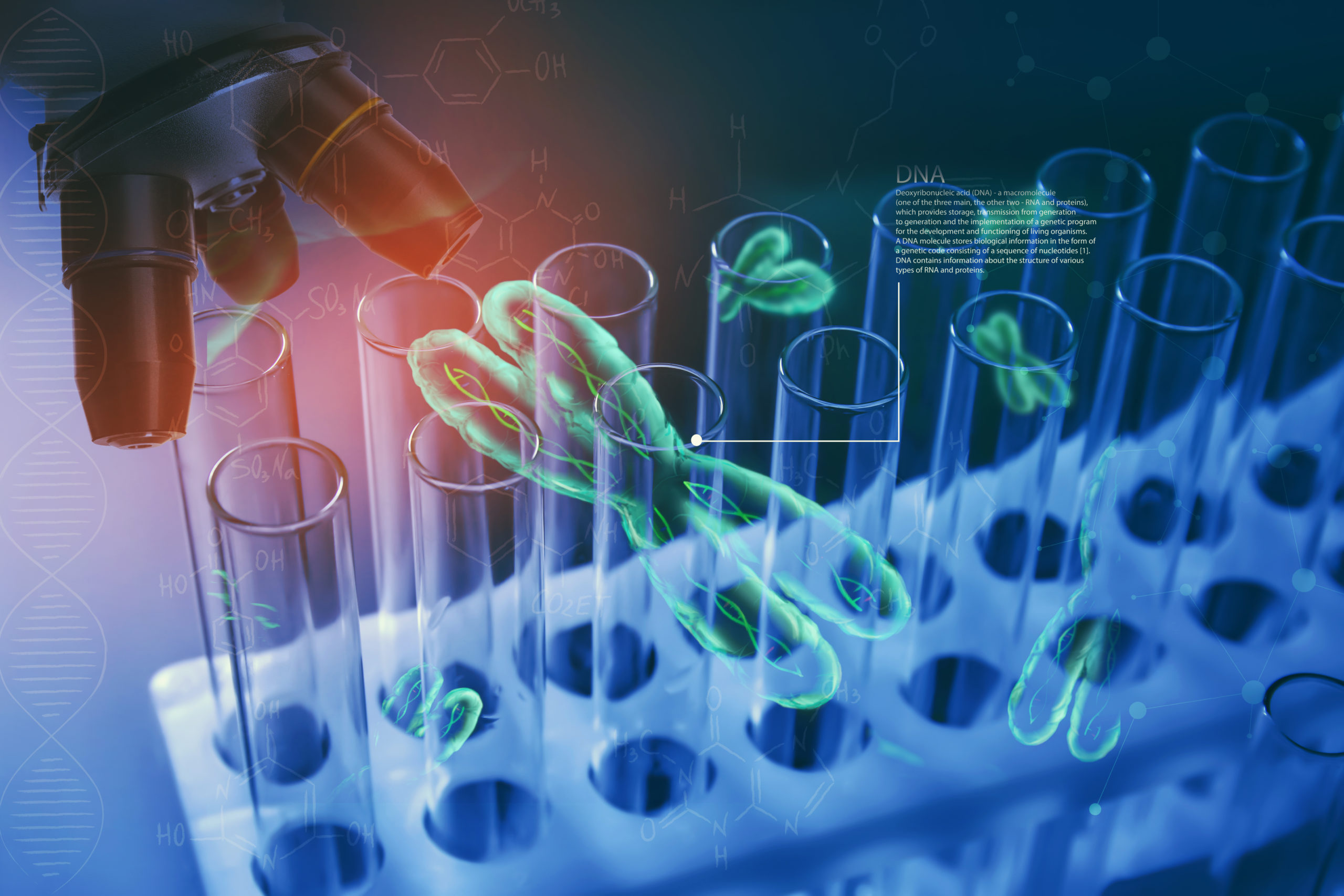
Test tubes in stand on dark background, closeup
Test tubes in stand on dark background, closeup
DNA probes are simply oligonucleotides (short sequences of DNA) approximately 100-1000bp long, that are used to detect the presence of complimentary sequences. Probes are labelled with fluorescent dye to illuminate the results. When the probe is mixed with a sample of DNA it will stick to any regions / fragments with a complementary sequence. This is often referred to as hybridization. Using a probe allows the target sequence to be seen under UV light. DNA probes are often used to highlight specific DNA fragments that have been separated by Gel Electrophoresis. An application of this technique called Chromosome “painting” are probes carrying colored fluorescent molecules called fluorophores. These probes are made to correspond sequences on each of the human chromosomes. There are 23 in all including the sex pair X&Y, making it since there are two sides 46 total. Each chromosome can be painted a different color often referred to as whole chromosome painting. Which makes it much easier to produce a Karyotype. These probes can be used to identify genetic defects often found in disease and cancer.
In oncology there is an emphasis on using DNA probes. Chromosomal translocation, and chromosome analysis are provided for understanding DNA probe assays for discovery in cytogenetic discovery. Cytogeneticists can visualize these translocations and analyze their structural variations. These have often helped in producing pre-clinical results to assist in the next phases of clinical trials and drug marketing, post FDA approval.
KromaTiD has over ten years of knowledge working with large Pharma companies and therapeutics companies, developing assays, providing data and analysis using our methodologies and technologies. Our mission is focused on the discovery and detection of complex genetic changes. Our technology detects structural variations quicker than that of our competitors. Our patented technology, known as directional Genomic Hybridization™ (dGH) combines bioinformatics driven design of unique single-stranded synthetic oligonucleotide probes with strand-specific hybridization strategies. Ours is the only genomics approach capable of detecting DNA sequence, location and orientation in a single test.
We provide a wide range of high-quality cell culture services, validation and QC of cell lines, and customizable cell services. FISH services and probes, chromosome paints, g-banding services, all with a focus on the customer. We guarantee to out price our competition and provide better data and analysis.
